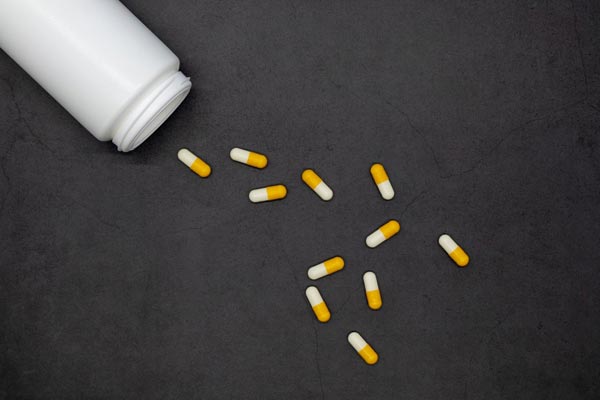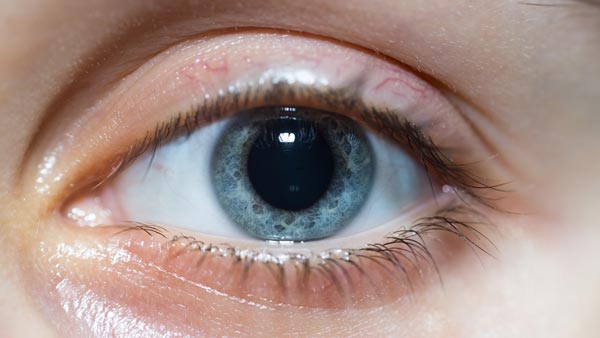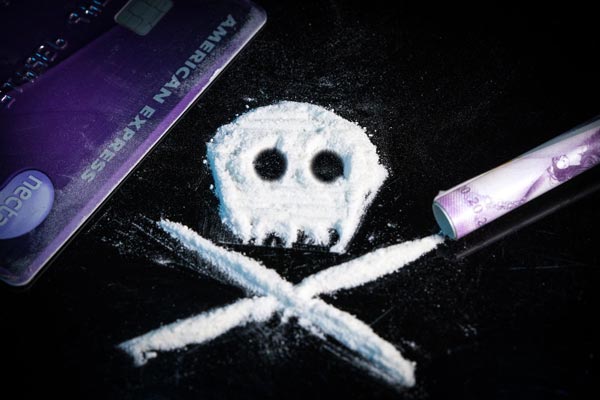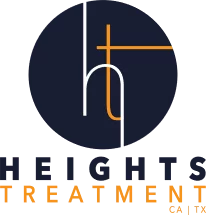Table of Contents
Many things are happening in the prescription pain medication world right now. Pharmaceutical companies are always working on developing better, more effective, and less risky pain medications. At the same time, those same companies are working with policymakers and health experts to address the drug addiction problem.
One of the good things that come out of those efforts is suboxone, a combination medication thought to be an effective treatment for pain while lowering some of the most common risks that come with many pain medications.
Of course, that doesn’t mean that this medication is risk-free. And, worse, many people taking it aren’t sure how they should deal with the medication when it comes to routine workplace drug testing or how taking suboxone might help or interfere with addiction recovery.
Here’s what you need to know.
What Is Suboxone?
If you don’t know what suboxone is, let’s cover what this medication is and what it does.
Suboxone is the name of a combination medication [1] that combines buprenorphine [2] and naloxone,[3] an opioid pain medication, and an opioid overdose rescue medication that blocks the action of opioid medications.
That might seem paradoxical, having a medication that contains both an opioid and an opioid antagonist (or blocker), but the medication has proven useful in many situations.
It’s formulated so that the buprenorphine in the medication still provides some pain relief, suitable for patients who need opioid pain medications, while also avoiding the potentially dangerous consequences of taking too much medication and preventing the extra medication from causing the high and euphoria that would otherwise come with taking opioid medications.

What Is Suboxone Used For
This drug aims to reduce the risk of addiction while providing pain relief and offering addiction patients a means of managing their addiction without the potential risks of full withdrawal.
That way, suboxone can be used for people with a history of addiction while keeping their risk of developing a new addiction to a minimum without denying them adequate pain medication when needed.
Doctors may also use Suboxone in cases where a long-term opioid pain medication is needed in the hope that it will reduce the risk of addiction while they are taking the medications long-term.
Lastly, suboxone has been used as a means of easing opioid withdrawal symptoms and also as a way to manage addiction in situations where full withdrawal isn’t a good option for any variety of reasons. In some cases, people dealing with an addiction may have medical complications that make going through withdrawal riskier than continuing to use. Suboxone can give these patients greater control and help them live normal lives while their health stabilizes, so they can either attempt withdrawal again or evaluate their quality of life on suboxone.
Can Suboxone Be Used To Help People Overcome Addiction?
Yes!
A lot of people worry that if they are still taking a medication that contains an opioid pain medication, they aren’t actually in recovery [4] from their addiction.
The reality is that addiction recovery is incredibly complicated, and everyone’s addiction recovery is a little different.
If you’re working with healthcare providers to overcome addiction, they might consider suboxone to make addiction recovery easier, safer, or more possible, depending on your circumstances.
Is suboxone right for everyone?
No!
Suboxone treatment isn’t necessarily right for all people working to overcome addiction, and not all doctors or healthcare professionals use suboxone when they are treating people with opioid addiction.
Suboxone isn’t a cure-all and may not be the right choice for you. Instead, think of suboxone as a tool in the toolbox for fighting against addiction and the opioid crisis. It’s an option and can be helpful, but not everyone needs it, and not every case of addiction calls for treatment.
Does Suboxone Show Up On A Drug Test
Because suboxone is often used in addiction recovery or long-term pain care settings, patients often worry that the medication will show up on a drug test at work or on a drug test they might need to take before employment.
Generally, suboxone doesn’t show up on routine drug tests. That’s because a typical drug test looks for specific opioid compounds that can result from taking specific opioid medications but aren’t typically present when someone takes buprenorphine or suboxone.
However, more detailed tests can detect suboxone use. Typically, a 12-panel, or more detailed test, is necessary to detect suboxone use.
But, because suboxone is a prescription medication that can be used in various situations, you can tell the drug testing company that you’re on this medication as a prescription. So they’ll be able to note that you have a prescription that explains a positive result on that portion of the drug test.
My Employer Tests For Drugs Regularly, Do I Need To Tell Them I’m On Suboxone?
If you’re worried about suboxone showing up on a drug test at your workplace, there are a few things to keep in mind and a few things you can do to help protect your job during the process.
The first is to remember that a standard drug test isn’t going to detect suboxone. But, if your workplace needs security clearances, or your job involves operating heavy machinery or a lot of driving, you might have a more in-depth standard drug test involved.
In that case, there are a couple of things you can do. First, ensure that your drug tester knows all your prescriptions. You might flag positive on different parts of the test depending on what prescriptions you have, not just the suboxone.
At the same time, if you are working in a situation where taking a drug like suboxone could be an issue, it’s a good idea to talk with your doctor to get a note about the medication and what you can or can’t safely do while taking it. If your job wants to address your drug test results, have that note with you to have a realistic and informed conversation about what you do and how the drug potentially impacts your role and duties.
In most cases, you and your employer should be able to work something out, even if you test positive on a drug test while taking suboxone.

Is Suboxone Addictive?
This is a complicated question because the simple answer is no, but the slightly better and much more complicated answer is yes, but very rarely.
That’s because suboxone does contain an opioid and does function as an opioid pain medication, which means there is always some risk of addiction. That said because the naloxone in suboxone helps prevent a lot of the functions of an opioid in your body, including the parts of opioid reactions that lead to physical dependence (where your body depends on the drug available to serve necessary functions normally performed by naturally occurring chemicals or neurotransmitters in the body), addiction is less likely.
However, everyone will react differently to medication, including medications like suboxone.
While suboxone doses are carefully managed, and most doctors prescribe the lowest effective dose of suboxone regardless of what condition they are treating, there is a risk that you may be more susceptible to opioid addiction and a simultaneous risk that your body may process naloxone differently than most.
That said, people who don’t have a pre-existing addiction have an incredibly low risk of developing one while taking suboxone. Additionally, the doses necessary to develop a chemical dependence or addiction to the drug are difficult to achieve with suboxone alone.
If you relapse and start taking other opioids while taking suboxone, that’s a different story. But, suboxone alone has a very low risk of addiction.
Need Help Overcoming Addiction?
Hopefully, knowing more about suboxone, especially when dealing with an addiction, makes addiction recovery seem a little more realistic and possible.
Suboxone can be useful in many medical situations. However, remember that quitting cold turkey isn’t the only way to overcome addiction if you and your doctor don’t think that’s the right path.
It’s also important to remember that you don’t have to overcome addiction alone. If you want medically informed, supervised, safe addiction recovery, regardless of what kind of addiction you’re dealing with or the complications that come with it, we can help.
Contact The Heights Treatment center if you have any questions about our treatment plans, want to verify that we accept your health insurance, or are ready to enroll in a treatment program now.
Addiction isn’t the end of the story. You can recover and turn the page to something new.
Sources:
- Rxlist. (n.d.). Suboxone. Retrieved from https://www.rxlist.com/suboxone-drug.htm on 2023, January 27
- Kumar R, Viswanath O, Saadabadi A. National Library of Medicine. (2023, February 27). Buprenorphine. Retrieved from https://www.ncbi.nlm.nih.gov/books/NBK459126/ on 2023, Janaury 27
- National Institute on Drug Abuse. (2o22, January 11). Naloxone drug facts. Retrieved from https://nida.nih.gov/publications/drugfacts/naloxone on 2023, January 27
- Grinspoon P. Harvard Health. (2021, October 7). 5 myths about using suboxone to treat opiate addiction. https://www.health.harvard.edu/blog/5-myths-about-using-suboxone-to-treat-opiate-addiction-2018032014496 on 2023, January 27
The Heights Treatment Editorial Guidelines
There is a vast amount of misinformation online especially as it relates to health & wellness. We have made it our mission at The Heights Treatment to provide accurate, medically sound content that has been medically reviewed by a doctorate level clinician so that you can trust the information contained within our website.





